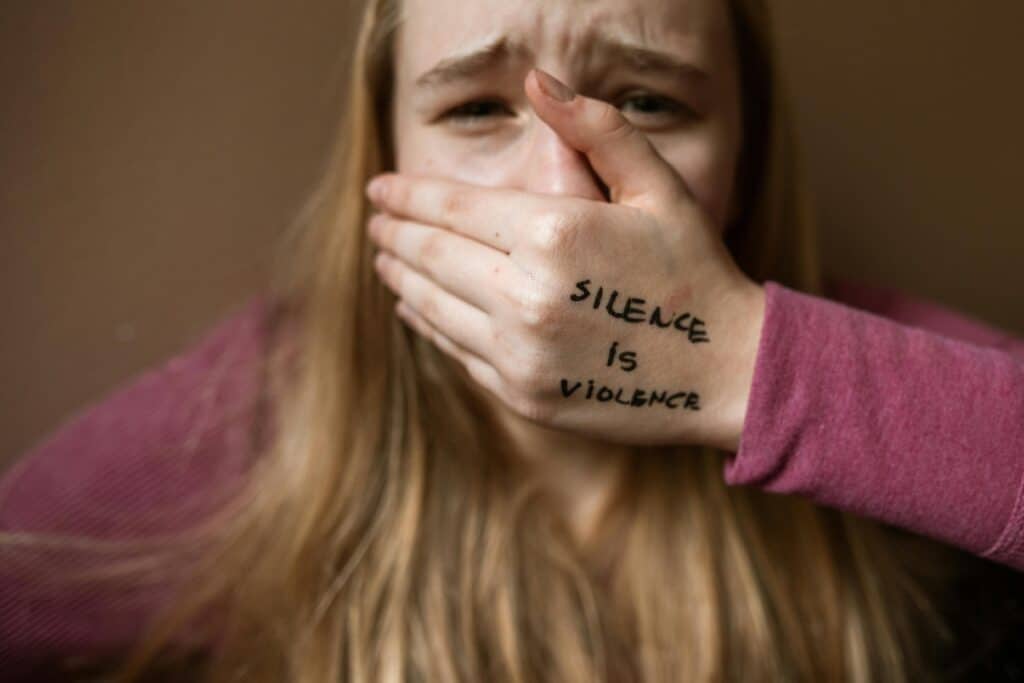PTSD Spousal Abuse: Understanding the Impact and Finding Healing
Nashville Mental Health
Nashville Mental Health
Experiencing abuse from a spouse or romantic partner can have devastating effects on your mental health. You may develop a mental health condition called Post-traumatic Stress Disorder (PTSD). PTSD after spousal abuse is a serious issue, but help is available. Nashville Mental Health offers comprehensive mental health services to support and guide you on your journey to healing.

What is Domestic Violence PTSD?
Domestic violence PTSD occurs when someone experiences post-traumatic stress disorder as a result of intimate partner violence. This means the symptoms of PTSD, such as flashbacks, nightmares, and anxiety, are triggered by the abuse suffered at the hands of a romantic partner. This abuse can take many forms and is often a pattern of behavior aimed at controlling the victim.
Defining Domestic Violence
Domestic violence is a pattern of abusive behaviors used by one partner to gain and maintain power and control over another partner in an intimate relationship. It encompasses a range of abusive actions including:
- Physical violence: Hitting, kicking, choking, or any other use of physical force.
- Emotional abuse: Verbal attacks, humiliation, isolation, intimidation, and threats.
- Psychological abuse: Mind games, gaslighting, and other tactics to undermine your sense of reality.
- Sexual abuse: Forcing sex or unwanted sexual acts, sexual coercion, and using sex as a weapon.
- Economic abuse: Controlling access to money, preventing employment, and sabotaging financial stability.
- Digital abuse: Using technology to track, harass, threaten, or control.
The Connection Between Domestic Violence and PTSD
Domestic violence creates a traumatic environment of fear, unpredictability, and helplessness. Victims often experience a constant threat to their physical and emotional safety. This chronic trauma can lead to the development of PTSD. The connection lies in the fact that the abuse experienced in the relationship meets the criteria for a traumatic event as defined by the diagnostic criteria for PTSD.

Causes of Domestic Violence PTSD
The Role of Trauma in PTSD
PTSD is fundamentally a response to trauma. Trauma occurs when a person experiences or witnesses an event that involves actual or threatened death, serious injury, or sexual violence. Domestic violence, with its inherent threat to safety and well-being, fits this definition. The traumatic experiences within an abusive relationship overwhelm the individual’s ability to cope, leading to lasting psychological and emotional scars.
The human brain is wired for survival. When we encounter danger, our bodies activate a “fight, flight, or freeze” response. This response helps us to react quickly to threats. However, in situations of domestic violence, this survival mechanism can become dysregulated. Repeated exposure to abuse can keep the body and mind in a constant state of hyperarousal, leading to the development of PTSD symptoms.
Furthermore, trauma can impact the way memories are processed and stored. Traumatic memories are often fragmented and intensely emotional. They can intrude into everyday life in the form of flashbacks, nightmares, and intrusive thoughts. These intrusive symptoms are a hallmark of PTSD and can be particularly distressing for survivors of domestic violence.
Nashville Mental Health
Risk Factors for Developing PTSD After Domestic Violence
While anyone who experiences domestic violence can develop PTSD, certain factors increase the risk:
- Severity and frequency of abuse: More severe and frequent abuse is associated with a higher risk of PTSD.
- Duration of the abuse: Longer periods of abuse increase the likelihood of developing PTSD.
- Presence of other forms of abuse: Experiencing multiple types of abuse (physical, emotional, sexual, financial) increases the risk.
- History of childhood trauma: Individuals with prior trauma are more vulnerable to developing PTSD after domestic violence.
- Lack of social support: Having limited support networks can increase the risk.
- Substance abuse: Substance abuse can worsen PTSD symptoms and hinder recovery.
Signs and Symptoms of PTSD
If you have PTSD from spousal abuse, you may experience a wide range of physical and emotional symptoms:
- Intrusive memories: You may have flashbacks, nightmares, or unwanted thoughts about the abuse.
- Avoidance: You may avoid places, people, or situations that remind you of the abuse.
- Negative thoughts and feelings: You may feel fear, guilt, shame, or have difficulty experiencing positive emotions.
- Changes in mood and behavior: You may feel irritable, have anger management issues, or have trouble sleeping.
- Physical symptoms: You may experience headaches, stomachaches, or other physical problems.

The Impact of PTSD
PTSD from spousal abuse can significantly affect your life. It can lead to problems with:
- Relationships: You may have trouble trusting others or forming healthy relationships.
- Work or school: You may have difficulty concentrating or completing tasks.
- Physical health: You may develop other health problems, like anxiety disorders, substance use disorders, or depression.
- Safety: You may continue to face ongoing safety concerns from your abuser.
Mental Disorders
How Common is PTSD from Spousal Abuse?
Research shows that PTSD is highly prevalent among domestic abuse survivors. Studies, including those published in the Journal of Interpersonal Violence and the Journal of Family Violence, consistently demonstrate a strong link between experiencing intimate partner violence and developing PTSD.
For example, research indicates that rates of PTSD among women who have experienced domestic violence range from 51% to 75%. This is significantly higher than the average rate of PTSD in the general population, which is around 10.4% for women. These findings highlight the profound impact that domestic violence can have on mental health.
It is important to recognize that these figures likely underestimate the true prevalence of PTSD related to spousal abuse, battered women, and mental illness. Many individuals may not seek help or receive a formal diagnosis due to various barriers, such as fear, shame, or lack of awareness. Therefore, the actual number of people suffering from PTSD or mental health concerns after experiencing spousal abuse is likely much higher.
Treatment Options for PTSD
Effective treatment is available for PTSD related to spousal abuse. Nashville Mental Health offers several therapies that can help:
- Cognitive-behavioral therapy (CBT): CBT helps you identify and change negative thoughts and behaviors.
- Exposure therapy: This therapy helps you safely confront your traumatic memories.
- Eye movement desensitization and reprocessing (EMDR): EMDR uses eye movements to help you process traumatic memories.
- Couples therapy: If you are still in a relationship with your abuser, couples therapy can help address the abusive behavior.
physical abuse
Safety Planning
If you are currently in an abusive relationship, safety planning is critical. A domestic violence advocate can help you create a safety plan to protect yourself and your children. This plan may include:
- Identifying safe places to go.
- Having a bag packed with essential items.
- Creating a code word to signal for help.
- Obtaining a restraining order.
Finding Help and Support
If you are experiencing PTSD from spousal abuse, please reach out for help. Nashville Mental Health offers a safe and supportive environment where you can begin your healing journey. We provide specialized mental health services for domestic violence survivors, including individual therapy, group therapy, and medication management. Visit SAMHSA for more information or seek a mental health prog
You are not alone. Contact us today for more information.
Nashville Mental Health
FAQs about PTSD and Spousal Abuse
1. What is the difference between domestic abuse and spousal abuse?
Domestic abuse is a broader term that includes any type of abuse within a family or household. Spousal abuse specifically refers to abuse within a marriage or romantic relationship.
2. Can men experience PTSD from spousal abuse?
Yes, men can also experience PTSD from spousal abuse. While women are more often victims of intimate partner violence, men can also be abused by their partners.
3. How long does it take to recover from PTSD after spousal abuse?
The healing process is different for everyone. Recovery time depends on many factors, including the severity of the abuse, your support system, and your treatment plan.
4. What are some common barriers to treatment for PTSD after spousal abuse?
Barriers to treatment can include fear of the abuser, financial constraints, lack of childcare, and shame or stigma.
5. How can I support a loved one who is experiencing PTSD from spousal abuse?
You can support a loved one by listening without judgment, offering practical help, encouraging them to seek professional help, and reminding them that they are not alone.





